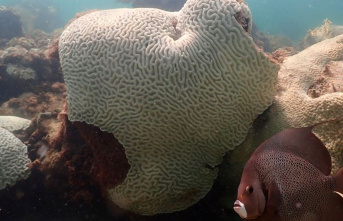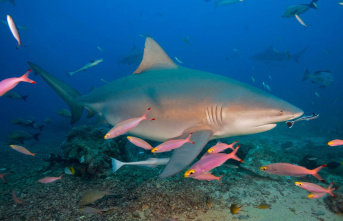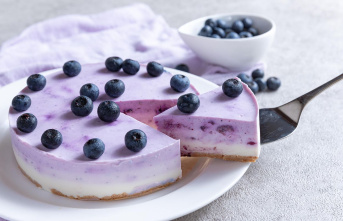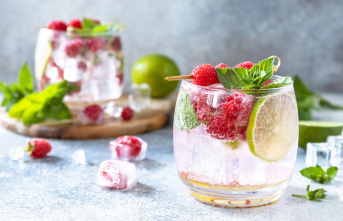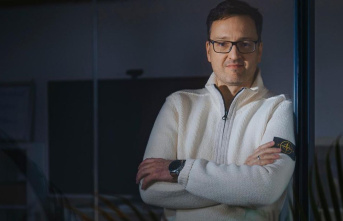It's about beauty, wonder, siblings, nature, sport, luxury, the ocean and Ukraine. And always about the message: "That people with Down syndrome are smart." This is how Anna-Lisa Plettenberg, longtime author for the magazine "Ohrenkuss" describes it at an editorial meeting.
This isn't just any meeting. The magazine's 25th birthday is coming up, the anniversary edition will be published on March 21st, on World Down Syndrome Day. Nine team members sit together in Bonn, six are connected via video. The 50th issue deals with friendship - and the topic drives everyone. "What we work on is also friendship. That really means: It's important to me," emphasizes author Julian Göpel.
Authentic Items
All the authors of "Ehrenkuss" have Down syndrome. Your texts will be published one to one. Errors in grammar or spelling will not be corrected. You are not a flaw. You are an asset. Some dictate their contributions, some write by hand, others on the computer. Angela Fritzen has been on board since the very first issue. "The first issue was about love. It's an ancient story," she recalls. Two magazines come out each year, and she was involved in all of them.
The anniversary issue was written by 50 correspondents. The articles for the magazines now come from numerous European countries and sometimes also from the USA, as the initiator and editor-in-chief Katja de Bragança describes.
What exactly is in the birthday issue is not revealed, but there is a small sample: "Friendship makes you happy," writes Manuel Müller in the magazine. Johanna von Schönfeld - also represented in the hybrid editorial board - states: "Without my family and without my friends I don't exist." And Teresa Knopp sees it this way: "Having friends is a real treasure that you can't find directly."
Anne Leichtfuss, translator for plain language, will lead the editorial conference. She and Katja de Bragança are the only ones at the table who don't have Down syndrome - also known as trisomy 21. Because the chromosome 21 is usually present three times in those affected, instead of twice. And so each cell has 47 instead of 46 chromosomes. How many people have Down syndrome is not recorded, explains human geneticist de Bragança. According to previous estimates, there are around 50,000 people, and the number 40,000 has been circulating for some time. Down syndrome is associated with various degrees of disability.
When it all started
In the past, when work on "Ohrenkuss" began, many still thought that people with Down syndrome could not read and write, reports author Teresa Knopp. She no longer encounters this misconception. But the fact that strangers sometimes call her “du” still happens and annoys her. More information is needed about Down syndrome, says Teresa Knopp, who works in the kitchen at a day care center: "Children are the future. It would be good to enlighten them."
everyday topics
The meeting ahead of the magazine's birthday isn't a strict work session. Problems in the flat share are also discussed, as well as stress at work. The war in Ukraine touches many. Yevhen Holubentsev fled from the bombs in Kiev, thanks to the translator app he can contribute a little to the "Ohrenkuss" team. And the pandemic has felt lonely for many. "You can't be forgotten," shouts Johanna von Schönfeld.
It is being discussed whether you can at least get a virtual regulars' table. "I like the regulars' table on the laptop," says Julian Göpel. But it would also be nice in a café, says Paul Spitzeck. Michael Häger - he is a founding member of "Ohrenkuss" and invented the magazine title at the time - is back in presence for the first time since Corona. He misses many other teammates.
Be as you are
Teresa Knopp definitely wants to stay on the ball with "Ehrenkuss". "It's so much fun with you to write this - and that I can just be who I am." Natalie Dedreux, who spoke about abortion in a TV program with then-Chancellor Angela Merkel during the 2017 federal election campaign, has also confirmed that she will continue to work. She's doing great. "It's always very cool."
The lyrics testify to creativity and empathy, some are emotional, others poetic. The messages come across as original, authentic and direct. There is no lack of humor. Author Paul Spitzer says in the anniversary edition: "I have a good friendship with my cactus. Her name is Kaki. We are close friends. We don't need to talk. We look at each other. And she's thirsty every other week."


